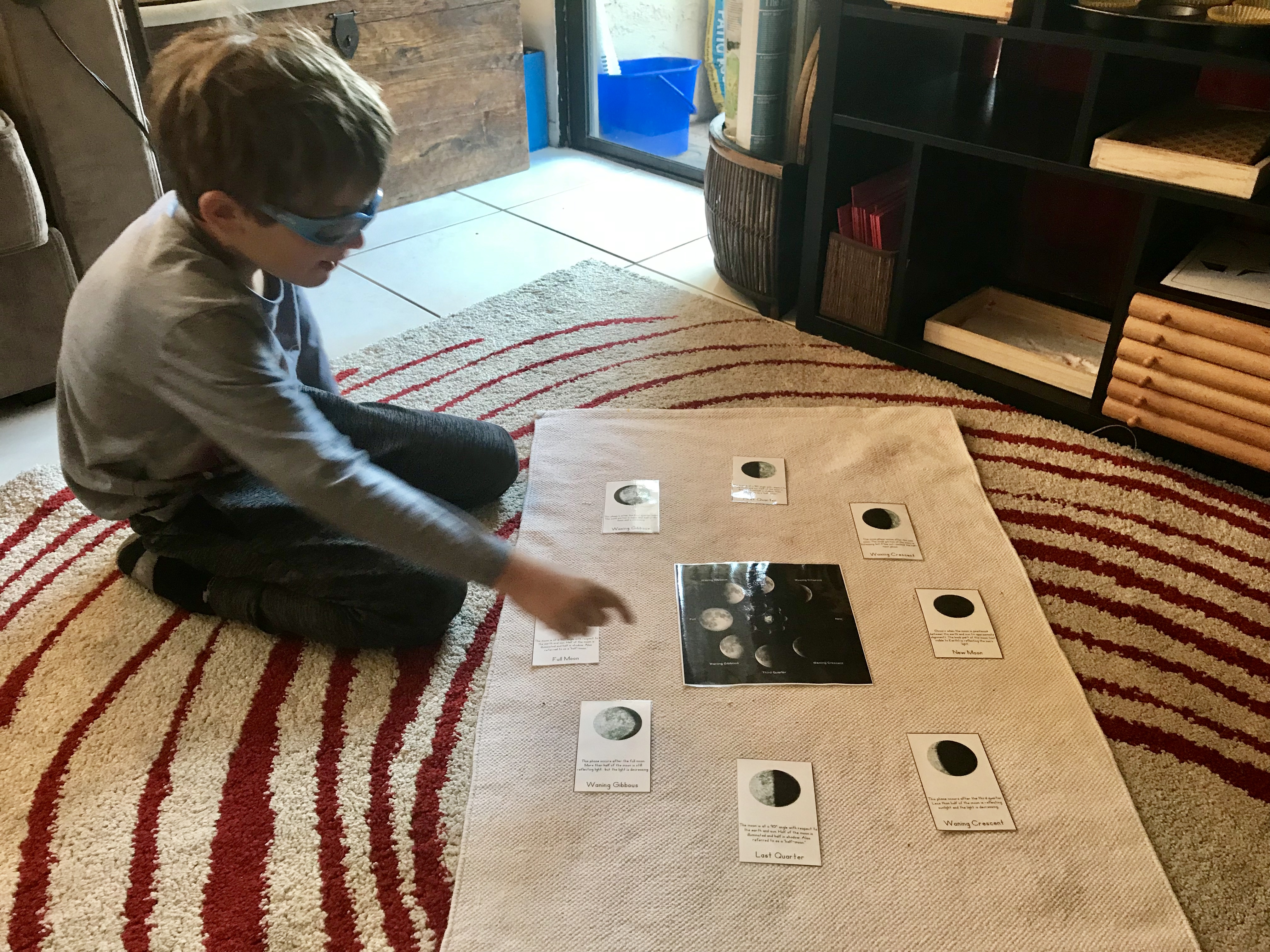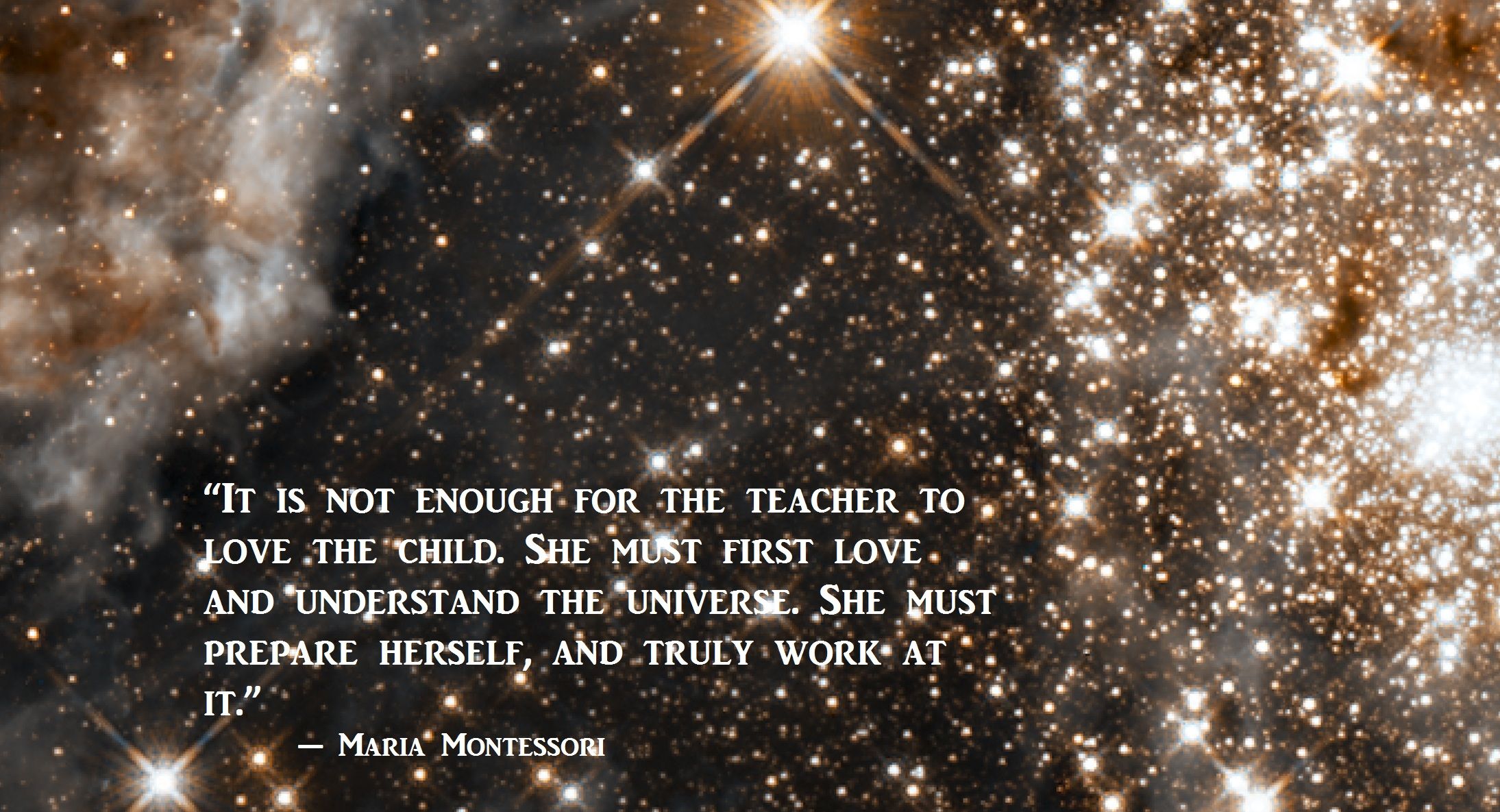Moon-tessori (haha, couldn't resist)
"You're great at this homeschooling thing because you're a teacher... I don't think I could do it because I don't know much about anything."
I can't tell you how many times I've heard this phrase since we started homeschooling two months ago, coming from the most capable and well-prepared mothers in my circle of friends. So here's a little secret... I don't know everything. Heck, I don't know most things! But I don't let that hold me back from learning and sharing with my children.
Here's an example of how I facilitate learning, and how you can, too!
The moon is a topic that seems to keep coming up in our home. Over the past few months we've read several fiction and non-fiction books about the moon (links at the bottom of this post) and we play games trying to find different shapes (a rabbit, and old man) on its surface. Seven-year-old Zachary had been asking why the moon changes through the month, so I knew it was prime time for a moon lesson.
Truth be told, even after 12 years as a Montessori guide, I could never quite grasp HOW the moon moved in relationship with the Earth, why the lighted part changed throughout the month, or how to tell when the lighted part was growing or shrinking. But the beauty of being a guide is that you don't have to know everything, you just have to "learn ahead of your children" (I love that Charlotte Mason phrase).
So, I found these two extremely helpful videos and FINALLY understood how it all works (thank you, Google)!
Then I dragged my kids to the craft store to buy a foam sphere (without telling them what it would be for); printed, cut, and laminated these free Moon Phases cards; and practiced the Moon/Earth/Sun demonstration when my kids weren't around.
Yes, sometimes it takes That. Much. Work. But, you know what? It was so worth it!
I invited my son to sit down and told him his head was the Earth (my three-year-old daughter wasn't interested, because, hello concrete thinker!). I then began slowly moving the moon around his head, and he saw how the lighted part of the white sphere grew from waxing crescent to first quarter. His eyes widened and his mouth stretched into a knowing smile.
I continued moving the moon around his head and I could tell he was enjoying the discovery process as much as I had. When we were done and I had casually sprinkled the terms for the moon phases into the demonstration, he got up and went downstairs to play with his sister.
I waited for a lull in their play and pulled out the moon phases cards. I told him we were going to play a moon game and put the "New Moon" card on the rug. I lined up the other cards randomly on the edge of the rug and said, "Hmm, which card might go next?" Eager to apply his knowledge, he quickly fished out the Waxing Crescent card and completed the entire cycle on his own. He mixed up Waning Crescent and Waning Gibbous, but I didn't say anything. I just offered the control chart and he caught his mistake on his own.

If you're a Montessorian, you might be wondering why I used the control cards for the lesson (heresy!!). If you must know, my son has little tolerance for three-part cards. They just don't resonate with how he learns. If he knows the information, he isn't the type of child who will humor you with busy work just to show you what he knows. And if he doesn't know something, he wants to get straight to the knowledge and understanding part right away - and three-part cards just don't give him that. I knew (from experience) that if I went through the whole rigamarole of having him lay out the picture cards, finding the corresponding labels, and then using the control cards to check, I'd lose him for sure.
There are about a thousand different ways to help your child solidify their knowledge of the moon phases, or any other concept they're curious about. My intention here was to illustrate how I go about preparing myself to facilitate my children's learning - and often, my own!

Favorite moon books: Fiction: Luna and the Moon Rabbit, Kitten's First Full Moon Non-fiction: Jump Into Science: Moon, The Moon Book
The books mentioned above are affiliate links. Purchasing through these links helps support the quality work you enjoy on this blog, at no cost to you. Thank you!
Categories
- 3-6 (8)
- 6-9 (26)
- 9-12 (8)
- Positive Discipline (2)
- Conscious Parenting (12)
- Montessori Curriculum (9)
- Preparation of the Adult (14)
- Preparation of the Environment (11)
- Montessori Principles (11)
- Montessori Homeschooling (20)
- Language Arts (3)
- Math (3)
- Geography (2)
- Biology (1)
- History (2)
- Practical Life (1)
- Montessori Stories (4)

2 comments
Wonderful blog! These are encouraging words. Thank you for sharing your journey and the wisdom you gain along the way. It sounds like my son learns similarly as yours. I’m still learning to adapt to him and his learning style.
Leave a comment